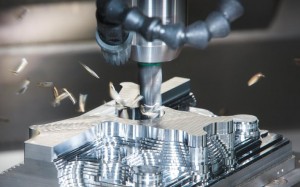Machining is an essential process for creating metal parts and components across many industries, from aerospace to automotive. Choosing the right machining material is an important decision that needs careful consideration.
This article explores the advantages and disadvantages of using titanium and stainless steel for machining:
Machining Titanium vs. Stainless Steel
CNC maching involves cutting or shaping metal into specific sizes or shapes with specialized equipment. It allows you to even produce parts with precise tolerances — like medical implants, screws, and bolts. There are various types of CNC machines like mills, lathes, drills, and laser cutters.
Titanium and stainless steel are two of the most commonly used machining metals, due to their superior properties. Both metals offer advantages in different scenarios, but you should consider the differences between them to make the best choice for your part.
Titanium Overview:
CNC machining titanium is challenging due to the metal’s high hardness and low thermal conductivity. Despite these inherent difficulties, titanium is a good material for many industries because of its increased strength, corrosion resistance, and ability to withstand extreme temperatures.
For successful machining, excellent operators must consider feed rates, cutting speeds, cutting tools, and other factors. With careful consideration and expertise, titanium has many potential benefits for an array of industries.
Stainless Steel Overview:
Machining stainless steel presents unique challenges but offers many rewards. It’s a hard, durable material, used in various applications, from small parts to large maintenance projects. Machining difficulty depends largely on the grade and type of stainless steel you choose.
For example, grades with high chromium and nickel content require careful management during the turning and milling processes. Depending on your requirements and tolerances for the components, you may also need an application-matched coolant. This helps maintain surface integrity while increasing productivity levels.
Differences between Titanium and Stainless Steel in Machining:
Corrosion Resistance
Titanium naturally has superior corrosion resistance to stainless steel. This makes it ideal for marine applications or environments where it will have exposure to salt water.
Conductivity
Electrical and thermal conductivity vary between these metals. Titanium is less conductive than stainless steel in both areas.
Strength
Is titanium stronger than steel? Yes, titanium has a higher strength-to-weight ratio and a lower melting point than stainless steel. Hardness and melting point differ as well.
Metal Cost
Titanium tends to cost more than stainless steel due to its rarity and harder-to-machine properties.
Other Factors
You will need to consider factors such as weight, durability, and machinability when making this decision.
Post time: Jan-06-2023







